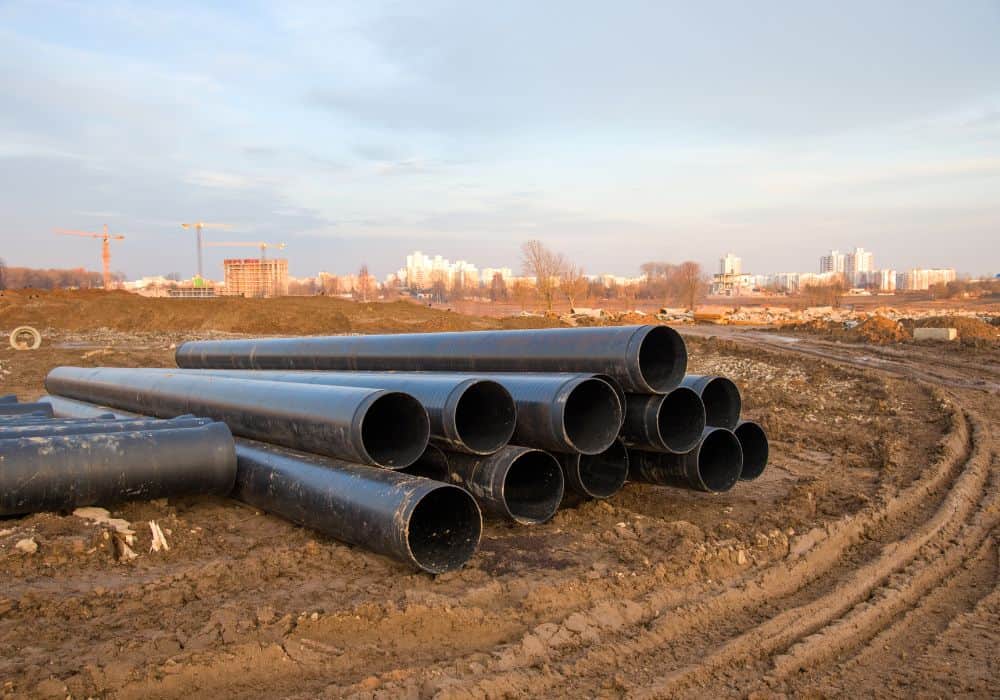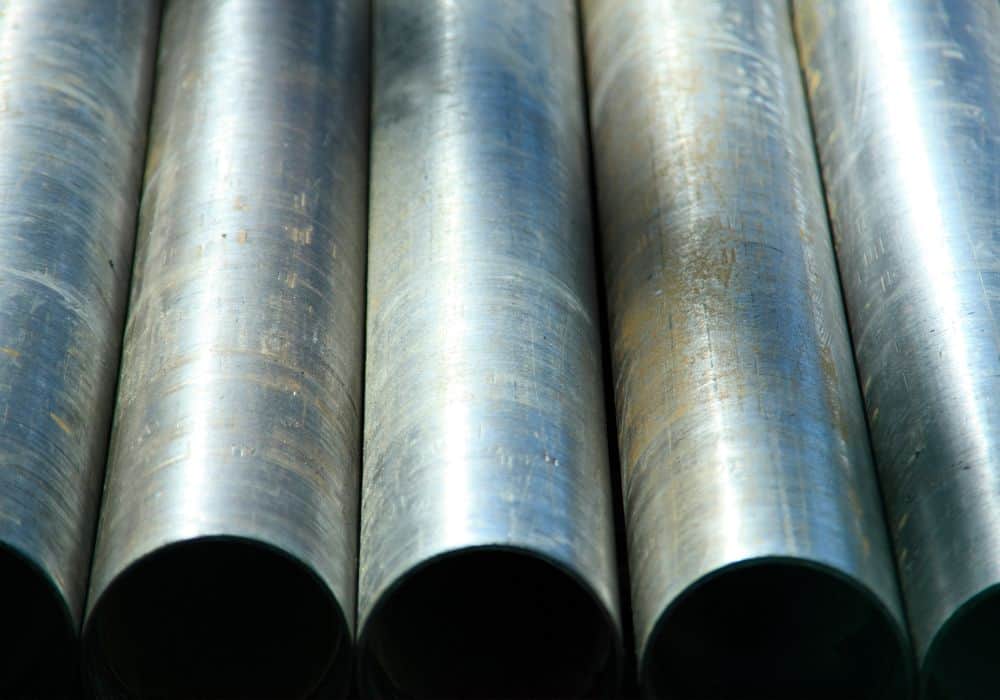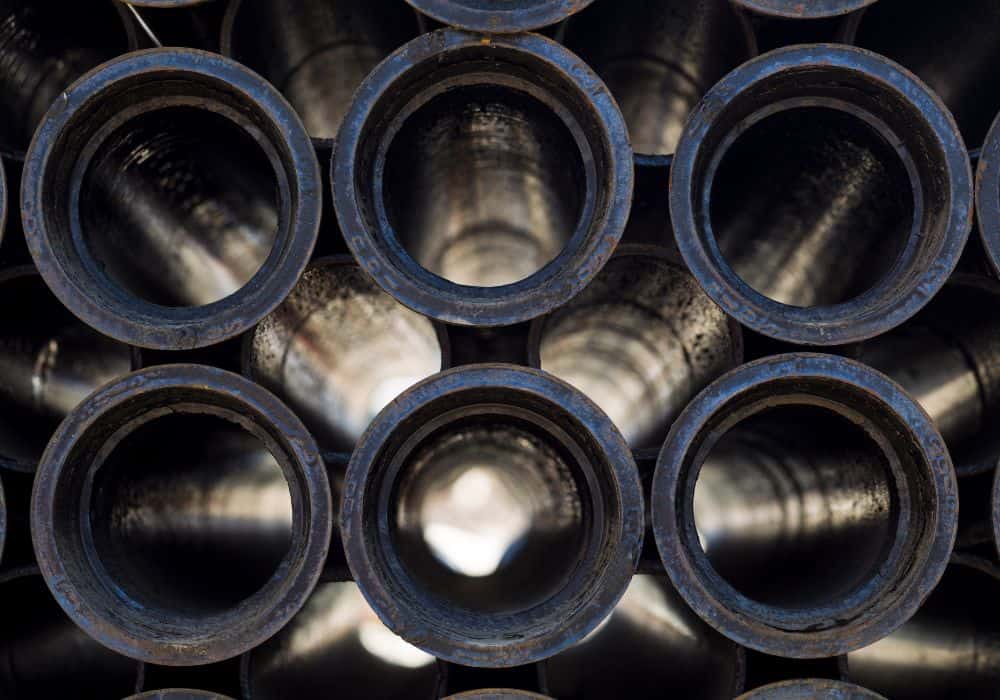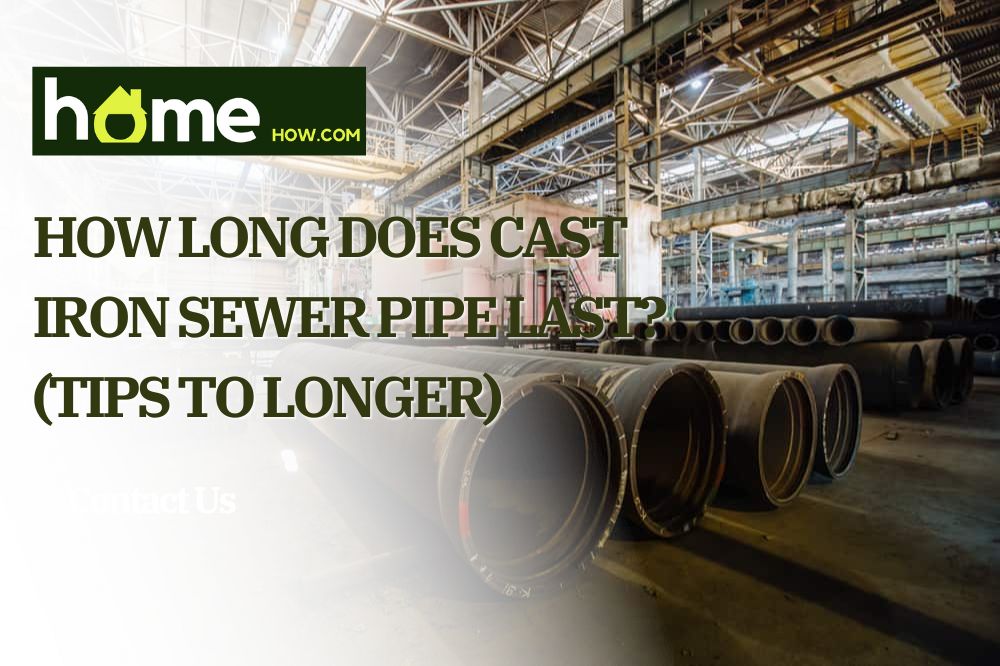If you’re a homeowner, you know that there are a lot of things that you have to keep up with. One of those things is your sewer pipe. Your sewer pipe is responsible for carrying all of the wastewater from your home to the sewer system.
You might be wondering how long your sewer pipe will last. In this article, we’re going to take a look at the lifespan of cast iron sewer pipes.
The Lifespan of Cast Iron Sewer Pipe
Cast iron sewer pipe is one of the most durable and long-lasting materials that can be used for sewer pipe. However, it is not indestructible and will eventually need to be replaced. The lifespan of cast iron sewer pipe depends on a number of factors, including the thickness, the installation, the environment, and the maintenance.
The most common classes of cast iron pipes are LA, A, and B. The LA has the thinnest walls, while the class A pipes are 10% thicker than LA pipes, and class B pipes are 20% thicker than class LA pipes.
The thicker the walls of the pipe, the more resistant it is to causes of failure that we’re going to cover later. As a result, class B cast iron pipes are the most durable and can last up to, or even over 100 years. Thinner cast iron sewer pipes typically last anywhere from 50 to 75 years.
The installation of cast iron sewer pipes is also important. If the pipe is not installed properly, it will not last as long. The pipe should be installed with a bed of gravel and should be surrounded by soil that is compacted.
The pipe should also be installed with a slope of about ¼” per foot of distance, so that water will flow through it.
The environment is also a factor in the lifespan of cast iron sewer pipes. If the pipe is installed in an area that is subject to freezing temperatures, it will not last as long. The pipe should also be protected from tree roots and other objects that could damage it.
Finally, the maintenance of cast iron piping is crucial to prolonging its lifespan. The better the maintenance, the longer the lifespan. Frequently inspecting its condition and properly declogging the pipe is necessary for a long lifespan.
What Causes Cast Iron Sewer Pipe Failure

Corrosion is the number one cause of cast iron sewer pipe failure. Cast iron sewer pipe is susceptible to corrosion from both the inside and outside of the pipe. The most common form of corrosion is from hydrogen sulfide gas, which is produced by the decomposition of sewage.
This gas corrodes the inside of the pipe, causing it to deteriorate from the inside out. The outside of the pipe is also susceptible to corrosion, particularly from the soil around the pipe. Soil contains oxygen, which can cause cast iron to rust.
Root intrusion is another common cause of cast iron sewer pipe failure. Tree roots can grow into the pipe, causing it to crack or break. Once a root intrusion has occurred, it is very difficult to repair the pipe without replacing it entirely.
Ground movement is the third common cause of cast iron sewer pipe failure. This can happen due to both natural causes, such as earthquakes or sinkholes, and man-made causes, such as construction. Ground movement can cause the pipe to crack or break, which can lead to leaks or blockages.
Cast iron sewer pipe failure can also be caused by poor installation or maintenance. If the pipe is not installed properly, it can be more susceptible to corrosion, root intrusion, and ground movement.
Another common cause of cast iron sewer pipe failure is a hairline crack. These cracks can form for a number of reasons, but most often they are caused by poor handling of the pipe prior to its installation.
Most often, hairline cracks aren’t visible, so faulty pipes are being installed, and soon enough start leaking before completely failing.
The Symptoms of Cast Iron Sewer Pipe Failure
There are a few different symptoms that you might notice if your cast iron sewer pipe is starting to fail. The first symptom is a slow drain. If your drain is taking longer than usual to drain, it could be a sign that your pipe is starting to fail.
Another symptom of cast iron sewer pipe failure is sewage backup. If you notice sewage backing up into your home, it is a sign that your pipe is blocked or has failed. This can be a very serious problem, as it can cause serious water damage to your home.
One more common problem which comes from cast iron sewer pipe failure is water discoloration from your sink. It could be a sign that the sewer pipe is clogged and that there’s a blockage that has to be taken care of as soon as possible.
The final symptom of cast iron sewer pipe failure is leakage. If you notice increased humidity, foul odor, or growing mold, it could be a sign that your pipe is leaking.
The Prevention of Cast Iron Sewer Pipe Failure

There are a few different things that you can do to prevent cast iron sewer pipe failure. The first thing that you can do is to have your pipe regularly inspected. A qualified inspector will be able to identify any problems with your pipe and can make repairs before they become serious.
Another thing that you can do to prevent cast iron sewer pipe failure is to have your pipe regularly cleaned. This will remove any build-up that could cause your pipe to fail.
The final thing that you can do to prevent cast iron sewer pipe failure is to have your pipe regularly replaced. If your pipe is more than 50 years old, it is a good idea to have it replaced. This will ensure that your pipe is in good condition and will not fail.
The Repair of Cast Iron Sewer Pipe
If your cast iron sewer pipe does fail, there are a few different things that you can do to repair it. The first thing that you can do is to have the pipe relined. This is a process where a new pipe is inserted into the old pipe.
You can expect to pay anywhere from $150 to $250 per foot of relined pipe. The exact cost depends on many factors, including the type of relining you want to get. For example, using a chemical called epoxy can coat your pipes from the inside, repairing the cracks.
Another thing that you can do to repair cast iron sewer pipes is to have the pipe replaced. This is a more invasive repair, but it will ensure that your pipe is in good condition.
No matter which repair option you choose, it is important to have a qualified professional plumber do the work. This will ensure that the repair is done properly and will last for a long time.
The Lifespan of Other Types of Pipes

Cast iron sewer pipe is one of the most durable types of pipes that can be used for sewer pipe. However, it is not the only type of pipe that can be used. There are a few other options that you might want to consider, depending on your needs.
PVC pipe is a type of pipe that is made from polyvinyl chloride. It was introduced in the 1980s and became extremely popular for its cheap cost, durability, and resistance to corrosion. PVC pipe is expected to last around 100 years.
PE pipe is a type of pipe that is made from polyethylene. It typically lasts anywhere from 50 to 100 years.
Copper pipe is a type of pipe that is made from copper. It is a strong and durable pipe that is resistant to corrosion. Copper pipe typically lasts over 50 years. With proper installation and frequent inspection, they’re safe for up to 80 years.
Clay Sewer pipes are made of clay, and they last about 60 to 70 years.
ABS pipe is a type of pipe that is made from acrylonitrile butadiene styrene. It’s easy to install, but can’t be used for hot-temperature applications, and can’t be exposed to sun rays. Despite that, when properly installed they last about 50 years.
Orangeburg pipe is a type of pipe that is made from cellulose fibers. It’s lightweight, but also not as durable as most other types of pipes. As a result, they often fail and require a full replacement. On average, this type of pipe has a lifespan of about 30 to 50 years.
Concrete pipes are heavy and durable but are susceptible to corrosion in acidic environments. That said, if they’re properly taken care of, concrete pipes can last over 100 years.
Galvanized pipe is a type of steel pipe that is made from steel that has been coated with zinc. It’s relatively durable and resistant to corrosion. They’re also easy to maintain compared to other types of metal pipes, but their lifespan is between 40 and 50 years.
Conclusion
If you’re wondering how long your cast iron sewer pipe will last, there are a few things that you need to keep in mind. The lifespan of your pipe depends on the thickness of the pipe, the installation, the environment, and the maintenance.
You can prolong the lifespan of your pipe by having it regularly inspected, cleaned, and replaced. If your pipe does fail, you can repair it by relining or replacing the pipe. If you have any questions about your cast iron sewer pipe, let us know in the comments!
